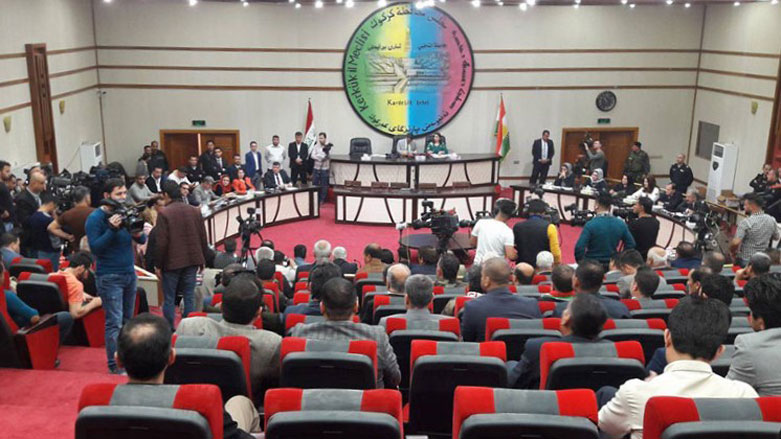Iraqi human rights commission files lawsuit against Kirkuk council for inaction

ERBIL (Kurdistan 24) – The Iraqi High Commission for Human Rights has announced it will bring a lawsuit against the leadership of Kirkuk Provincial Council (KPC), arguing that its failure to function or even to convene sessions amount to human rights violations against its citizens.
"The Kirkuk Provincial Council has not held a session since Oct. 16, 2017, which is contrary to the law," read a statement released on Thursday. "It causes damage the province's maintenance, security, and the implementation of projects."
It added, "Iraqi penal code no. 111 of 1969, article 364, punishes with two years of imprisonment and fines each employee or charge of public service deliberately neglecting their duties and having an impact on the lives of people and their health."
The oil-rich and ethnically diverse province has been at the heart of major disagreements between Iraq's two leading Kurdish parties over the past few years, especially after Iraqi forces and Shia militias attacked and took over Kirkuk and other disputed territories on Oct. 16, 2017, in response to the Kurdistan Region's independence referendum.
An ongoing rift between leading factions in the local legislature caused a key session to be delayed indefinitely, yet again, when the body failed to achieve quorum on April 30.
"We wanted to hold a session on several issues regarding Kirkuk Province but this failed because many council members were not present," said council member Tahsin Kahiya during a press conference later that day.
The KPC was expected to discuss and, possibly, elect a new governor. The position is currently occupied by a Baghdad-appointed bureaucrat that has held the office since late 2017 following the ouster of Kurdish governor Nejmaldin Karim.
A coalition between the Kurdistan Democratic Party (KDP) and the Patriotic Union of Kurdistan (PUK), which now holds 26 seats in the 41-seat provincial legislature, appointed Karim as Kirkuk's governor in 2011. After the events of October 2017, however, he was forced to leave the city and his post.
Along with Karim, many members of the KPC, including its head, fled for the Kurdistan Region. Many refuse to return to the province until the situation there is returned to pre-2017 conditions which would include an end to what many of them call the current military rule by Iraqi forces and militias.
Kirkuk is claimed by both the Kurdistan Regional Government (KRG) and the federal government of Iraq. The population is made up of Turkmen, Arabs, Christians, and a Kurdish majority.
The future of the province was constitutionally mandated to be determined through a referendum as outlined in Article 140 of the Iraqi constitution, which stipulated that the vote was to be held before the end of December 2007. More than a decade after the deadline, the article remains wholly unimplemented.
